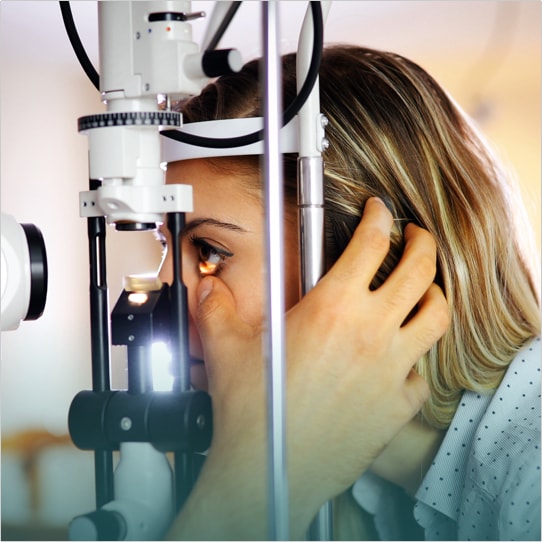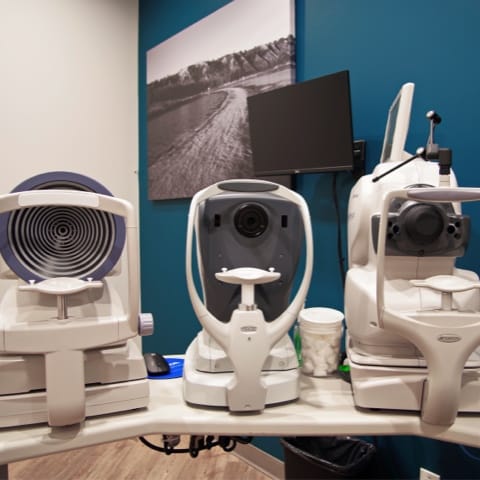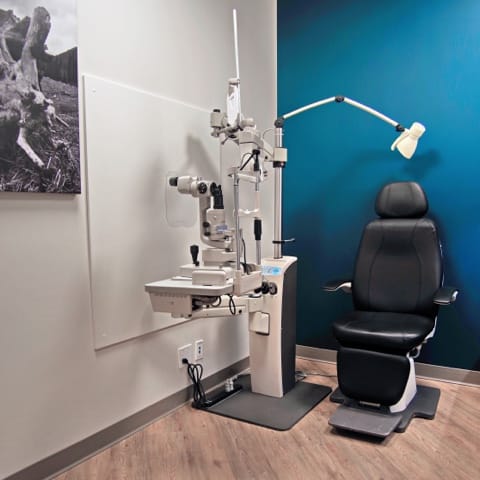Keep Your Eyes in Mind When Managing Diabetes
Your eyes are delicate organs that can be affected by other conditions in the body. One such condition is diabetes.
For people with diabetes, routine eye exams are vital. Book an appointment at Trinity Hills Eyecare to monitor the eye health risks that come with diabetes.

What is Diabetes?
Diabetes is a condition where the body is either unable to produce or process insulin (a hormone made in the pancreas). This means the body’s blood sugar levels are unable to regulate properly, which can cause harm to the body’s organs and interfere with energy levels.
Currently, there are about 11.5 million people in Canada living with diabetes or prediabetes.
How Diabetes Affects Sight
Diabetes-related eye disease is among the leading causes of blindness in Canada. High blood sugar can cause blood vessels in the eye to swell and leak, which leads to vision problems. Thankfully, early detection is one of the best preventative measures to save sight.
At Birring Eyecare, we use cutting-edge technology to search for diabetes-related vision problems. We know many patients are uncomfortable with the puff test used to check intraocular pressure, so we don’t use it! Other methods allow us to check your eyes less invasively.
One test used is an optical coherence tomography (OCT) scan. This test uses light to take images of the back of the eye, giving us information about your retinal health. We’ll need to dilate your pupil with special drops before the scan.We also use fundus photography to take colour photos of the inner eye using a low-powered microscope with an attached camera. Dilating drops will also be used in this test.
Diabetic Retinopathy
Diabetic retinopathy is caused by high blood sugar making blood vessels in the eye swell and rupture. Over time, new, abnormal vessels may grow in, and oxygen to the eye may be blocked. This can lead to vision loss.
Diabetic Macular Edema
Diabetic macular edema (DME) is a complication of diabetic retinopathy. It can occur at any stage of diabetic retinopathy but is more common in the later stages. DME interferes with the macula, the central point of the retina responsible for detailed vision.
Symptoms
There are generally no symptoms early on in the progression of diabetic retinopathy. This is why regular eye exams are so important: the technology used in a diabetic eye exam can often spot the problem before you can.
As diabetic eye diseases progress, symptoms may include:
- Fluctuating or blurring of vision.
- Occasional double vision.
- Loss of visual field.
- Flashes and floaters.
Let Us Help
You can manage diabetic eye problems by keeping diabetes managed. This can be done through medication, exercise, and nutrition, as well as adjusting lifestyle factors like high blood pressure and stress.
Make your optometrist a key part of your diabetes and health management team. Visit Trinity Hills Eyecare for a diabetic eye exam.
Our Brands






















